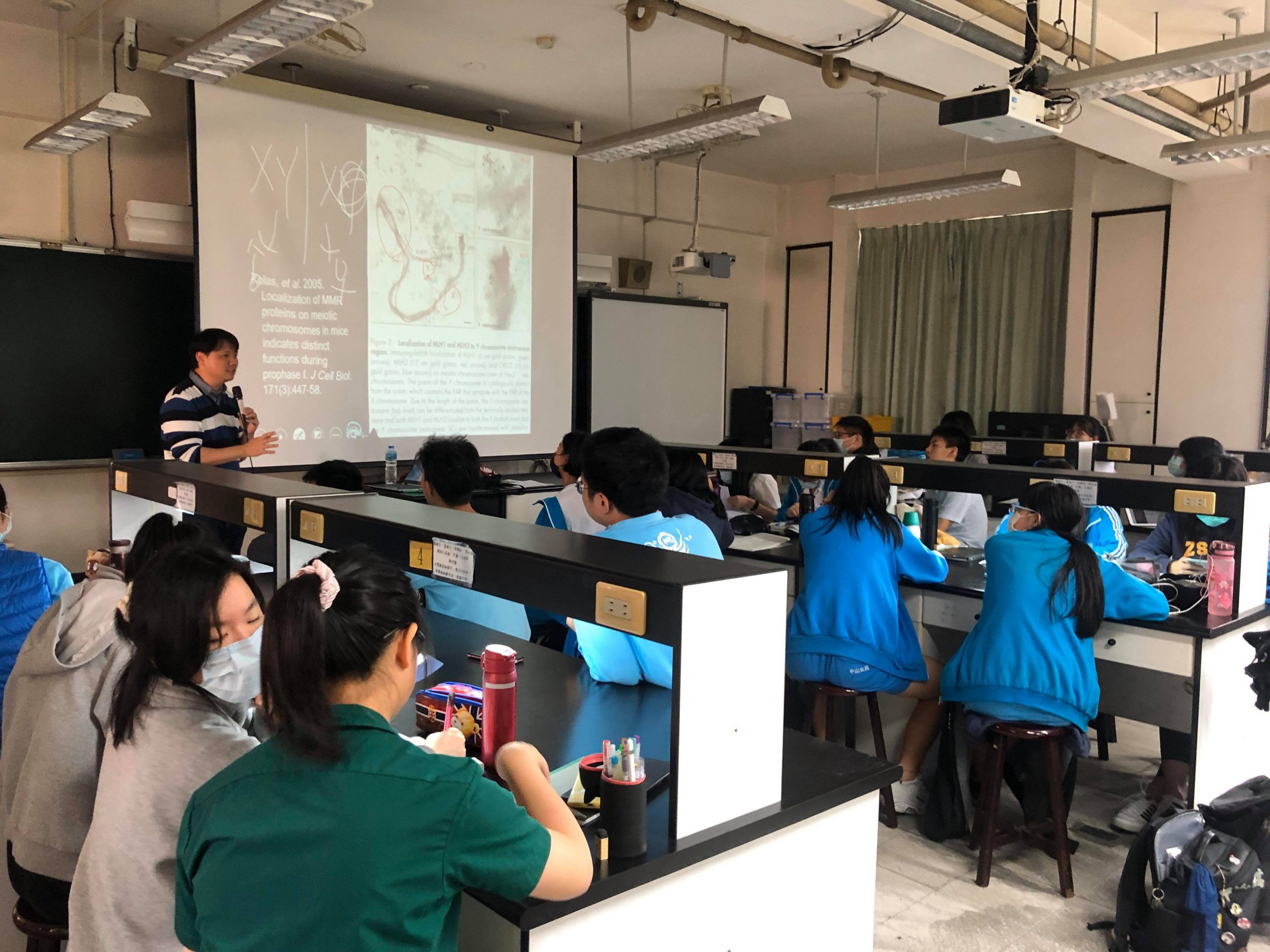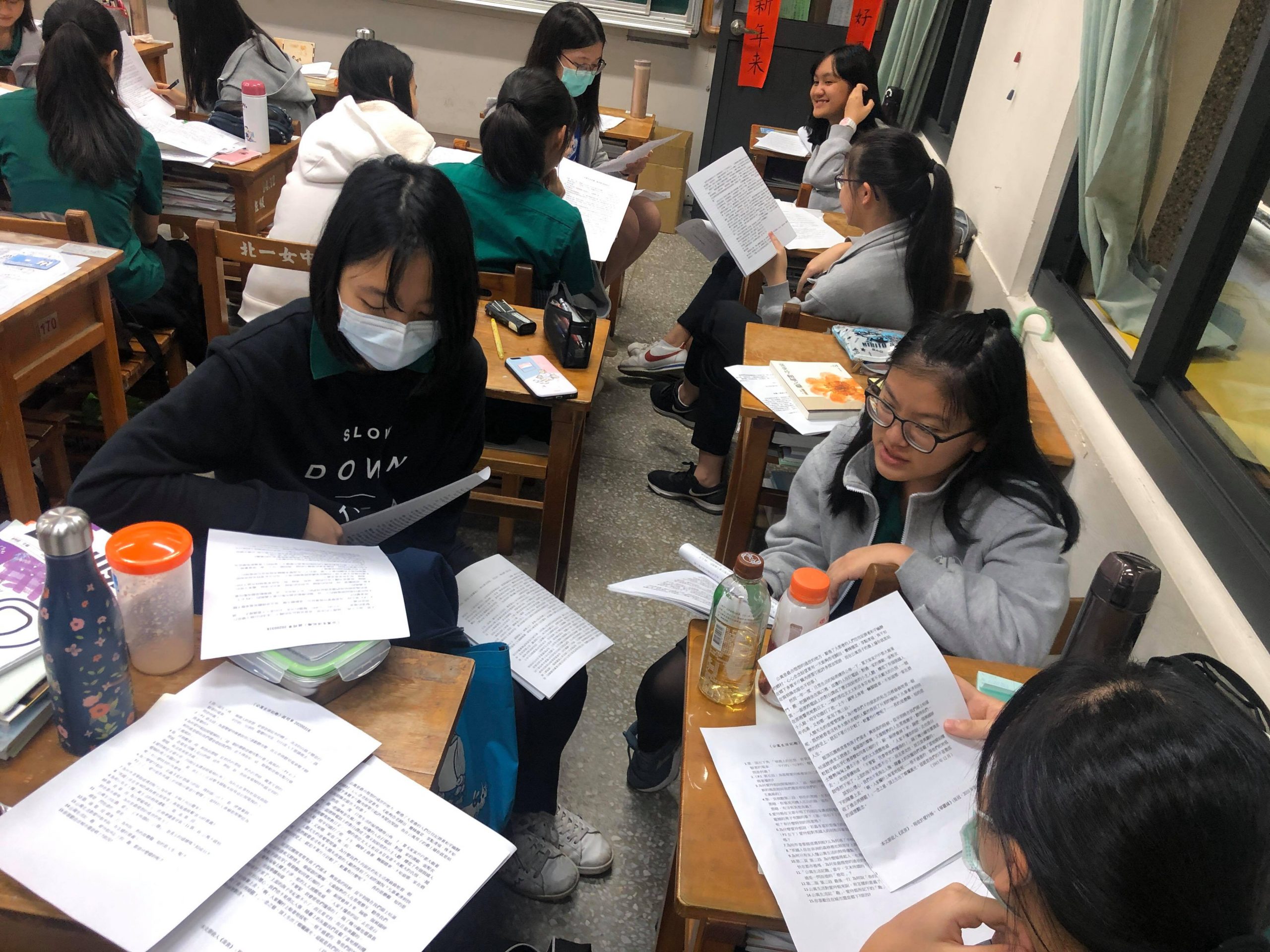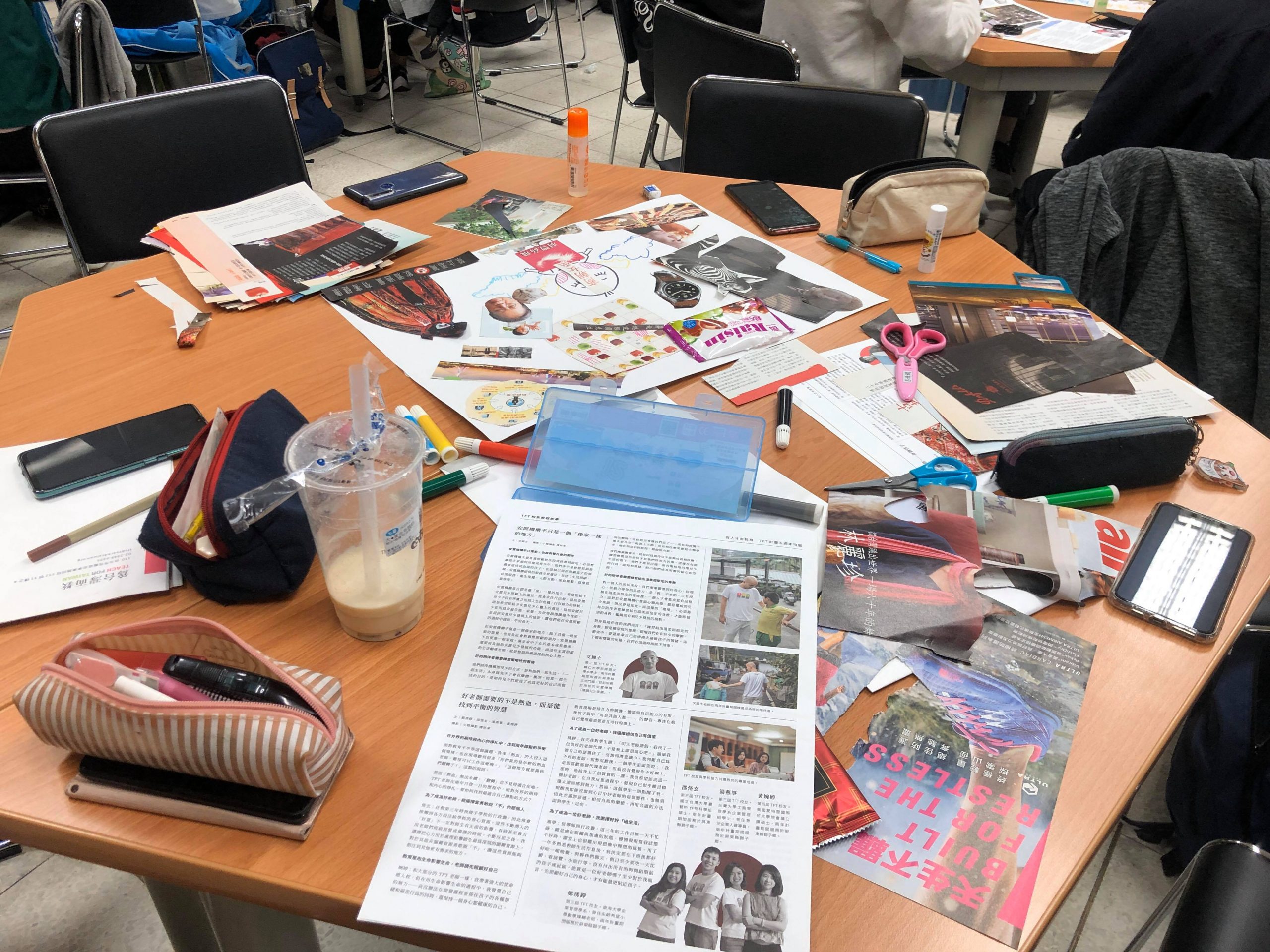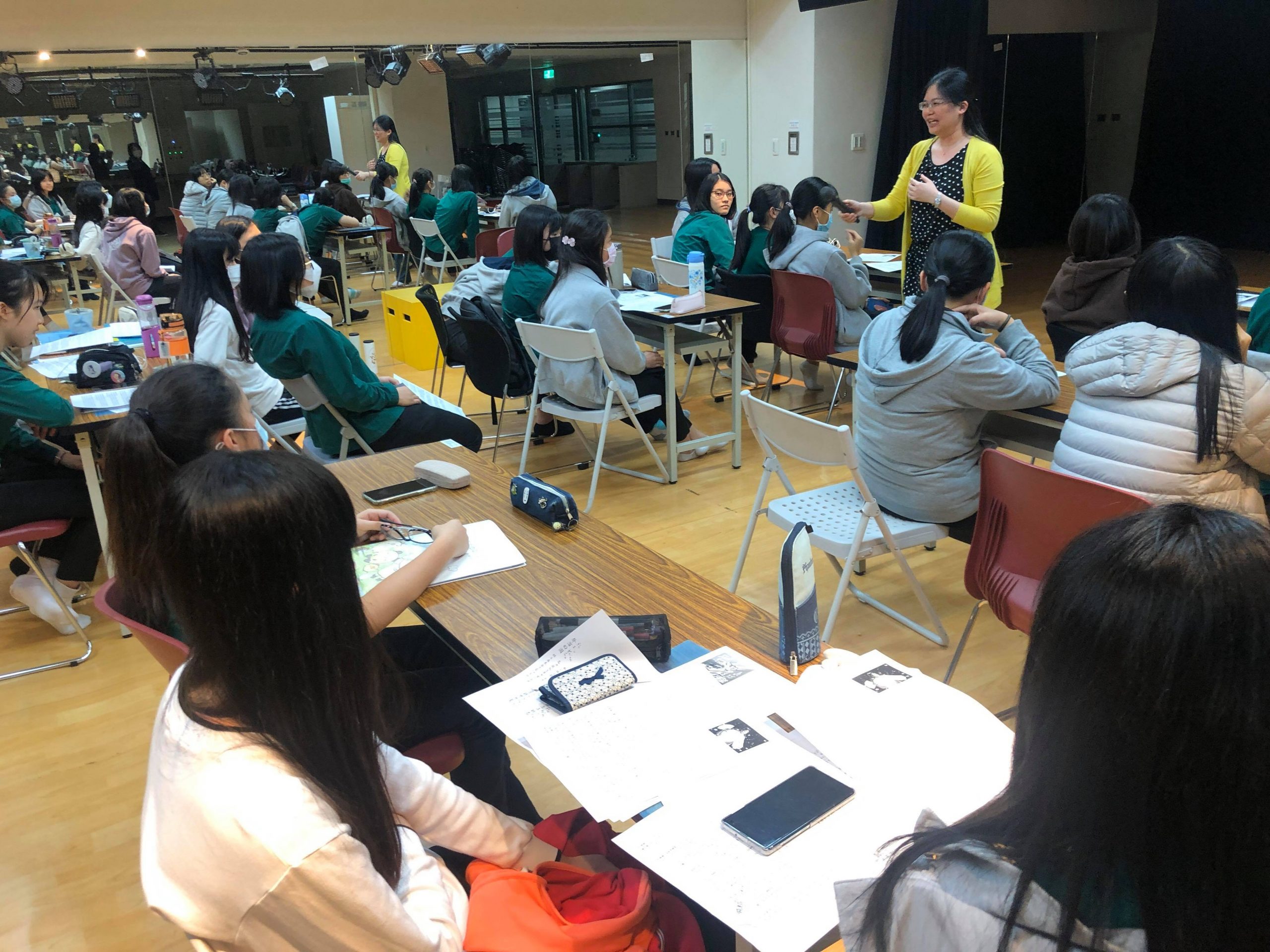頁籤 (Tabs) 鍵盤操作說明
在 Tabs 功能表時:
- (左方向鍵) :前一個選項
- (右方向鍵) :後一個選項
- Home : 第一個選項
- End : 最後一個選項
- Tab : 移至資料內容區
在 Tabs 資料內容區時:
- Tab : 下一個連結 (Link)
- Shift + Tab : 上一個連結 (Link),如在第一個連結,會回到功能表區。
- Ctrl + (上方向鍵) : 跳回 Tabs 功能表目前選項
English

Founded in 1904, Taipei First Girls High School (TFG) has a history of more than a hundred years. TFG, with its superb tradition, has long stood as one of the most prestigious senior high schools in Taiwan (R.O.C.). Aiming at holistic education, the school puts emphasis on the balanced development of students’ intellectual abilities. Currently, there are 68 classes, including 6 scientifically gifted classes, 3 classes for science programs. The school has a large number of extracurricular activities and holds a great variety of inter class competitions for each grade. Most of these competitions require every student’s participation, which encourages students to develop leadership, build commitment, explore interests, and strengthen comradeship within classes. The student body is full of talented individuals and characterized by a proud record of success. Till now there are about 80,000 graduates. TFG is proud to have distinguished alumni all over the world. In all professions and fields, they have been playing essential roles and making remarkable contribution.
❖ Student body
With a large student body of 68 classes and 2,388 students in total, admission to the school is still highly competitive. In the past, the lowest admission score for regular students in the junior high school leaving exams (The comprehensive Assessment Program for Junior High School Students) was in the 98th percentile nationally.
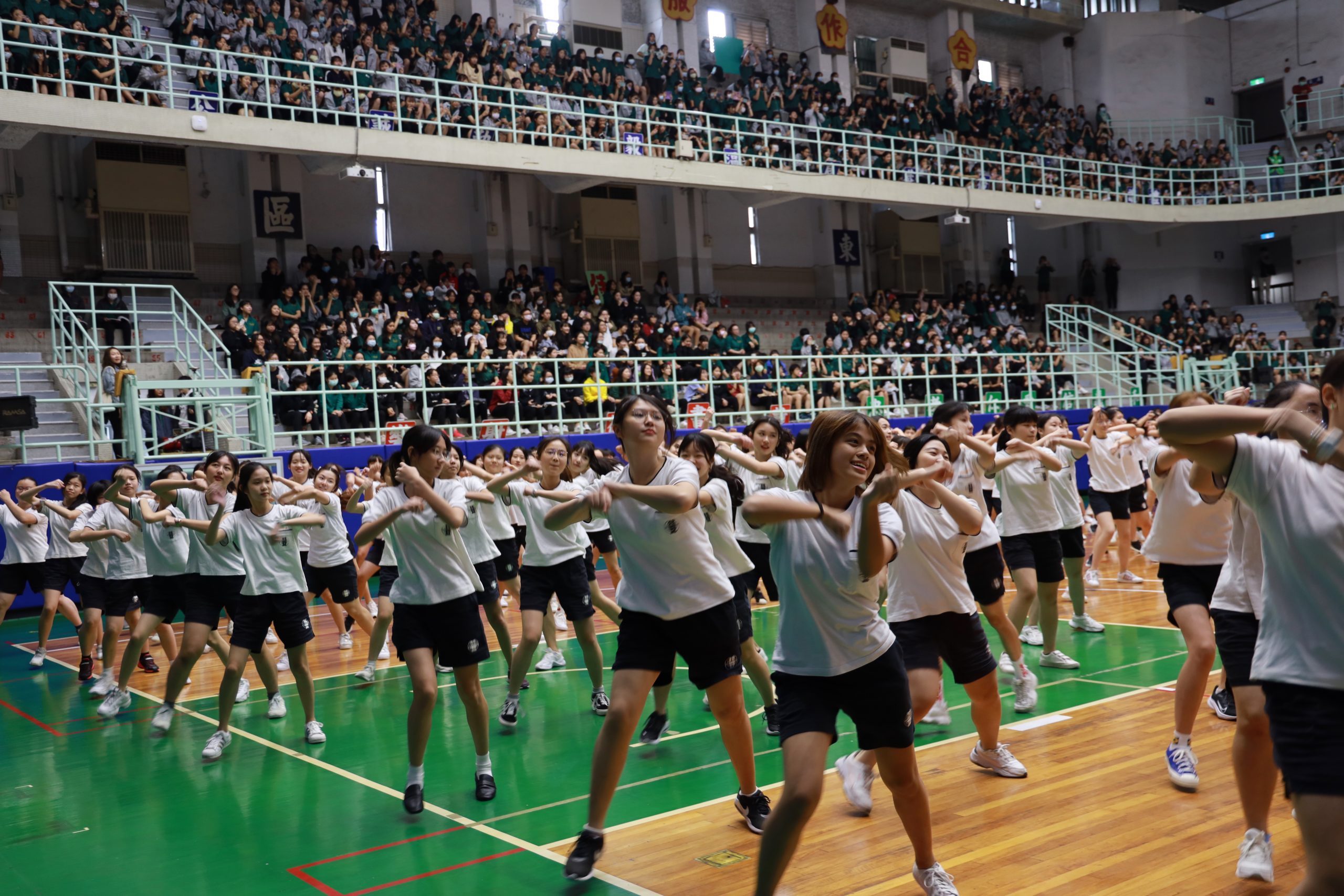
❖ Curriculum
The mandatory courses are respectively Chinese, English, Civic and Society, History, Geography, Mathematics, Physics, Chemistry, Biology, Earth Sciences, Music, Arts and Life, Health and Nursing, Physical Education, Living Technology, Information Technology, National Defense Education, Home Economics, Life Education, and Career Planning. At the end of grade 10, students select one out of three groups to study in the next two years; Group I places a heavy emphasis on literature and social studies, while the science curriculum of Group II and Group III consists of more rigorous science and biology courses.
❖ Standardized Test Results
In the National Academic Examinations of 2024, organized by the College Entrance Examinations Center (CEEC), 5.3% of the graduating Class scored in the top 1% and 45.8% scored in the top 10% nationally.
❖ Post High School Placement
97.3% of the 2024 class went on to higher education.
3.7% went on to universities overseas.
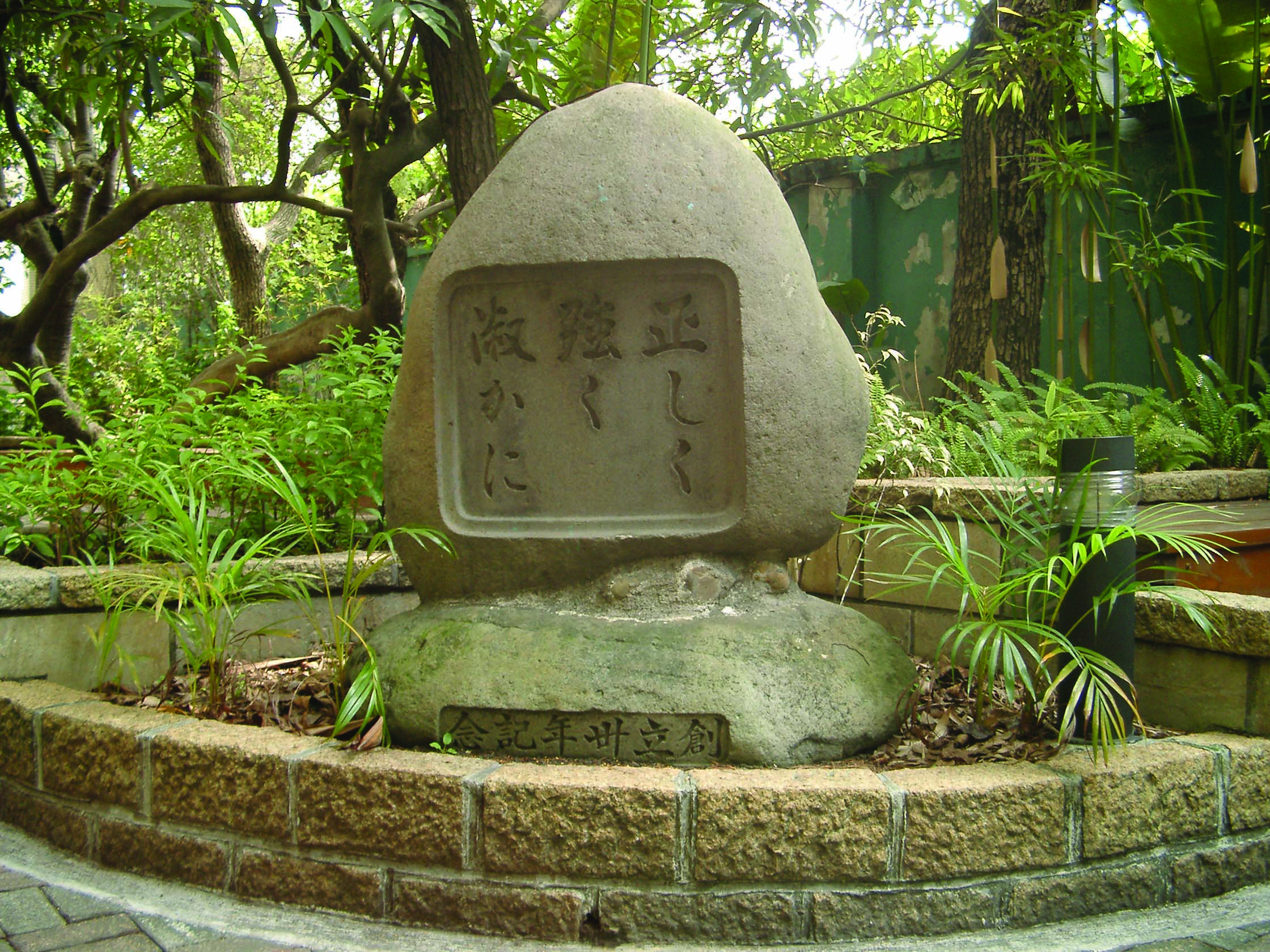
❖ The school motto, “Integrity, Sincerity, Diligence, Perseverance,”
The school motto, “Integrity, Sincerity, Diligence, Perseverance,” encompasses the core values of conduct and character.
“Integrity” emphasizes public morality, justice, and adherence to rules.
“Sincerity” encourages honesty in dealing with others and sincerity in actions.
“Diligence” inspires hard work to compensate for shortcomings, enhance wisdom, and strive for progress.
“Perseverance” highlights strong willpower in the pursuit of both virtue and knowledge, aiming for personal and professional achievement. These four principles guide students in their academic and personal lives, fostering excellence and responsibility as members of society.
❖ School Vision: A Warm Green Garden, Leading the World
Our school emphasizes three core competencies: “Flexibility and Diversity, Communication and Collaboration, and Global Participation.” These competencies represent the journey from individual development to engaging with surrounding communities and eventually impacting the global stage.
These core competencies align with the 108 Curriculum Guidelines’ focus on “Self-directed Action, Communication and Interaction, and Social Participation.” The goal is to foster holistic development, cultural empathy, elite cultivation, and a global perspective, preparing students to become leaders with cultural literacy, technological knowledge, and international vision.
In line with the three dimensions and nine core competencies of the 108 Curriculum Guidelines, we aim to equip our students with key abilities in “Global Learning, Aesthetic Appreciation, Language Communication, Team Collaboration, Creative Thinking, and Logical Reasoning.” The ultimate goal is for students to internalize these abilities and become lifelong learners.
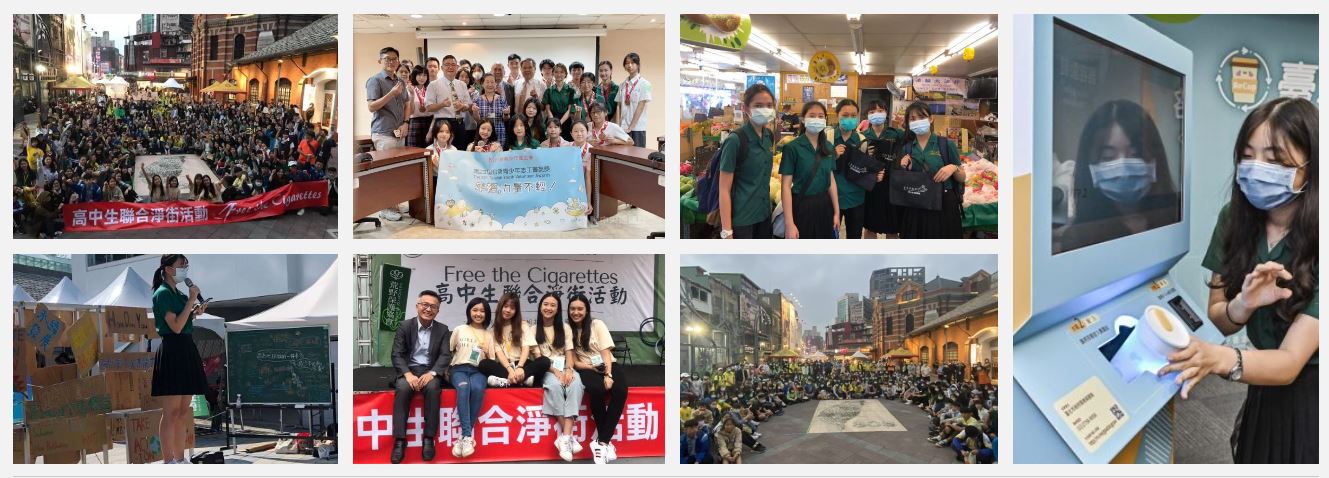
❖ Educational Goal
Our educational goal is to cultivate students’ foundational competencies and core abilities. This is achieved through the “National Compulsory Courses” and “School-Specific Compulsory Courses,” which establish a solid academic foundation. To address the characteristics of the 18 university fields, we have designed four major groups of “National Advanced Electives” with a student-centered approach to foster advanced learning abilities. Additionally, to allow students to explore individual aptitudes and develop themselves, we offer “Diverse Electives” to meet their needs. Through the design of “Flexible Learning Time” and “Group Activities,” we aim to enable students to fully engage in self-directed learning and independent action, internalize and deepen their knowledge into skills and competencies, and further develop their communication and collaboration abilities, reflecting the spirit of interactive mutual benefit and global participation.
❖ School Features
Taipei First Girls High School, with over a century of history, is a leading girls’ school in Taiwan. The school emphasizes holistic education, focusing on a balanced development of knowledge, character, and skills, with a diverse curriculum that integrates both humanities and sciences. The faculty is highly professional and passionate, and students consistently excel. The school’s vibrant extracurricular activities, especially its renowned marching band and color guard, are key features. Strong support from alumni and parents, along with frequent international exchanges, helps students develop a global perspective and become outstanding contributors to society.

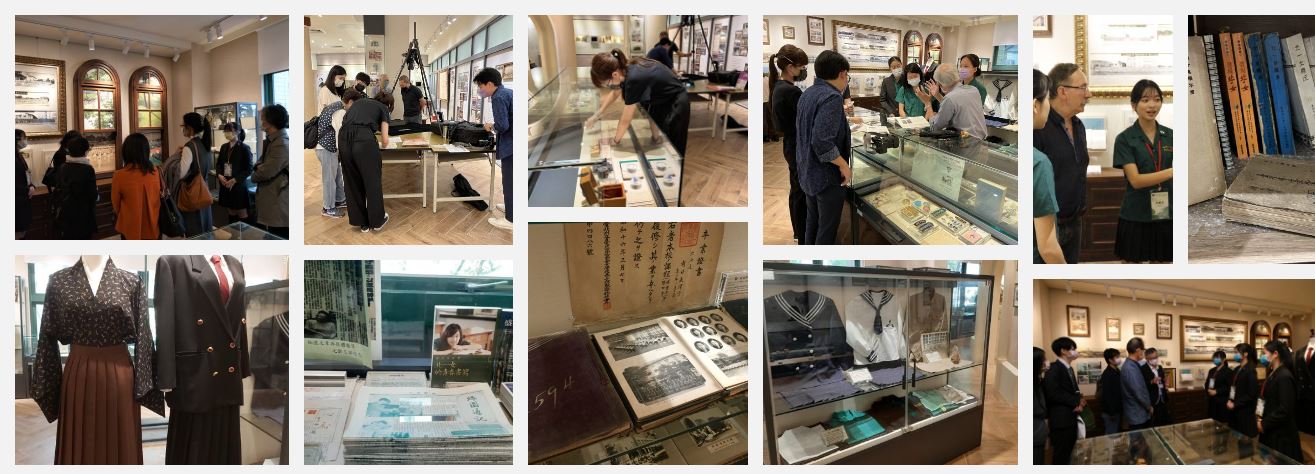
❖ A Refined and Diverse Holistic Education ❖
Our school values the development of students in knowledge, character, and ability. We cultivate students with a broad vision, a respectful and inclusive attitude, and a passion for lifelong learning. Teachers, with their rich professional expertise and enthusiastic dedication, engage deeply in teaching and nurturing talent. Students, in turn, eagerly seek knowledge and strive for growth. In the stimulating environment of a rigorous and excellent academic atmosphere, students develop a broad vision and rich cultural literacy through academic learning, life education, extracurricular activities, physical training, and artistic enrichment, thereby achieving the ideal of holistic education.
❖ Pursuing Excellence with the Spirit of the Green Garden ❖
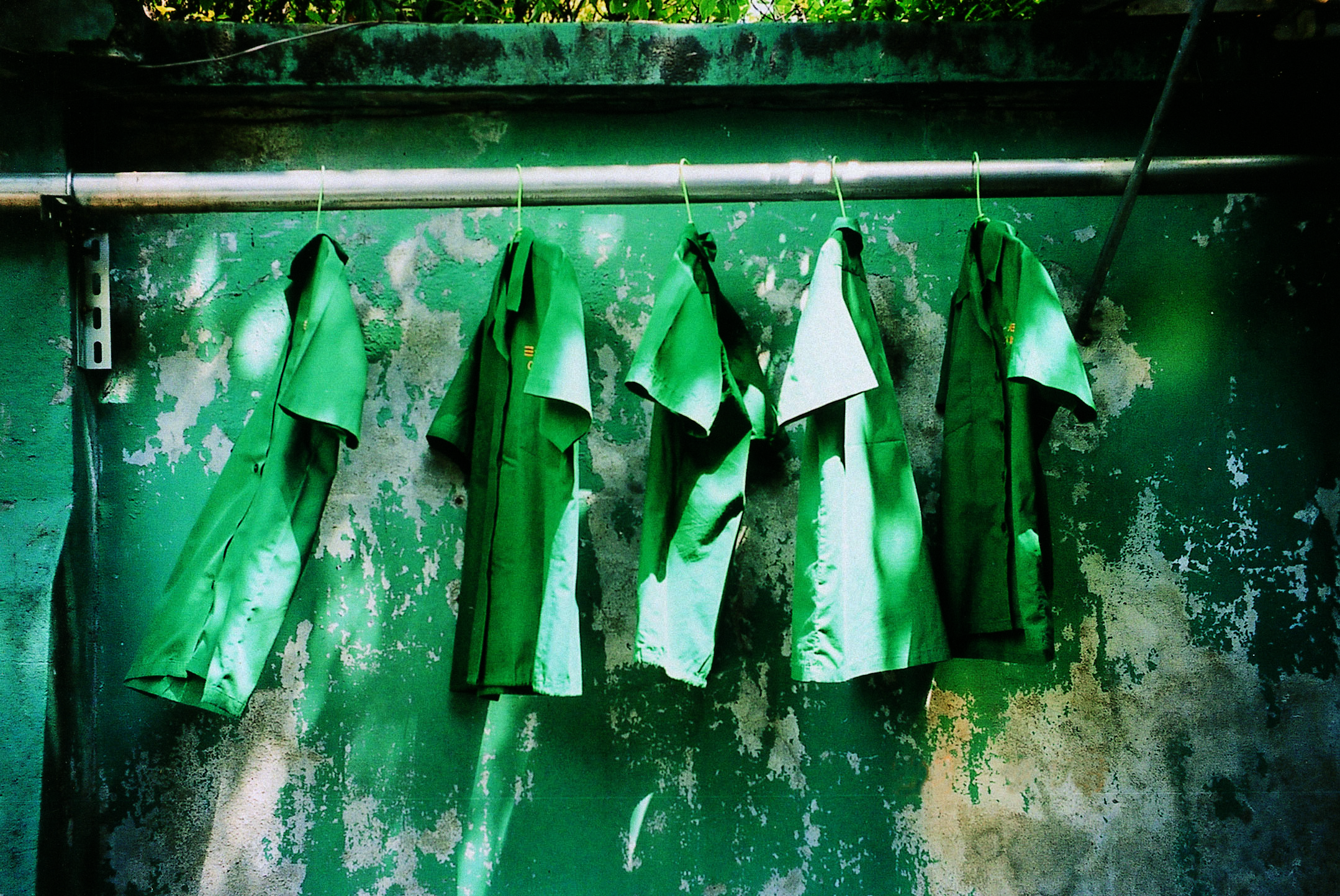
“Only our girls’ school, renowned across the island,” Taipei First Girls High School, with its excellent traditional school spirit and experienced and dedicated faculty, has become a renowned institution both domestically and internationally. Looking to the future, we will build upon this solid foundation to provide students with an ideal learning environment and growth space. Teachers and students will work together with mutual encouragement and support, embodying the spirit of the Green Garden, which mirrors the unrelenting and resilient spirit of the grass. “We start as grass and grow into great trees,” and year after year, the grass of the Green Garden will grow into towering trees. We believe that through everyone’s collective efforts and dedication, Taipei First Girls High School will continue to grow and thrive.
❖ National Compulsory Courses
These are fundamental courses required for high school students to achieve general educational standards. They follow the curriculum guidelines set by the Ministry of Education and are scheduled from Grade 10 to Grade 12.
❖ School-Specific Compulsory Courses
To develop students’ core competencies and international perspectives, the school offers interdisciplinary and integrative courses such as “Reading Comprehension and Expression” and a variety of “Second Languages” for students to explore based on their interests.
Second language courses available include Japanese, German, French, Spanish, Korean, and Latin, offered in Grade 10. The “Reading Comprehension and Expression” course in Grade 11 helps students develop critical thinking and research skills through observing, hypothesizing, data collection, and analysis. This aims to foster a lifelong interest in learning.
❖ National Advanced Electives
To align with university programs, the school has designed four major groups of advanced electives that build on the compulsory courses. These electives follow the Ministry of Education’s guidelines and include both core and elective courses to support diverse academic pathways.
❖ Diverse Electives
These courses cater to the school’s vision, student needs, and interests, offering personalized and differentiated options such as general applications, aptitude exploration, and college preparatory courses. They are mainly available in Grades 10 and 12, with different courses each semester, and include regular student presentations to showcase and expand understanding of the courses.
❖ Flexible Learning
In line with the 108 Curriculum Guidelines, the school provides 3 hours of flexible learning each week. Grade 10 students have this time on Wednesday afternoons, Grade 11 on Monday or Thursday afternoons, and Grade 12 according to their course plan. This period includes self-directed learning, university exploration mini-courses, subject enrichment or remedial courses, competition training, school events, and special lectures.
❖ Group Activities
Group activities occur every Friday during the 6th and 7th periods. These include class activities, club activities, student council events, school Featured activities, and lectures.
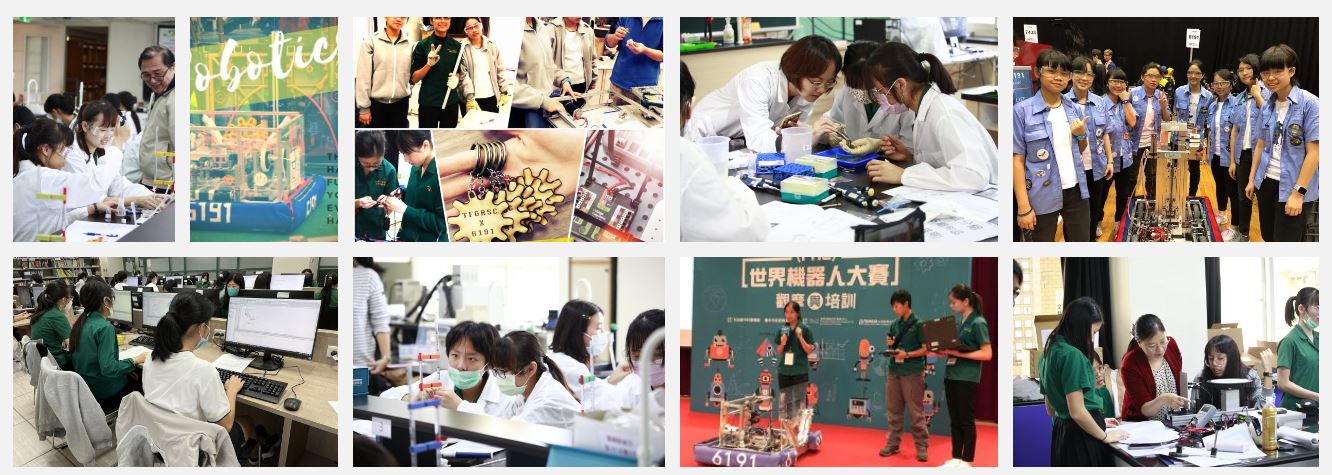
❖ Mathematics and Science Talent Class
Our Mathematics and Science Talent Class features flexible curriculum teaching with 2 to 8 hours per week of specialized courses. Students experience combined or group teaching, with a reduced range of elective courses in Grade 10. They engage in in-depth required and elective courses in natural sciences, independent research, and practical science projects, covering subjects like math, physics, chemistry, biology, earth sciences, and computer science.
In Grade 10, students explore their strengths through guided group work, with assessments to aid in subject selection and accelerated learning. In Grade 11, they deepen their expertise through specialized independent research, focusing on innovative problem-solving and flexible thinking, avoiding rote memorization in favor of developing analytical and logical skills.
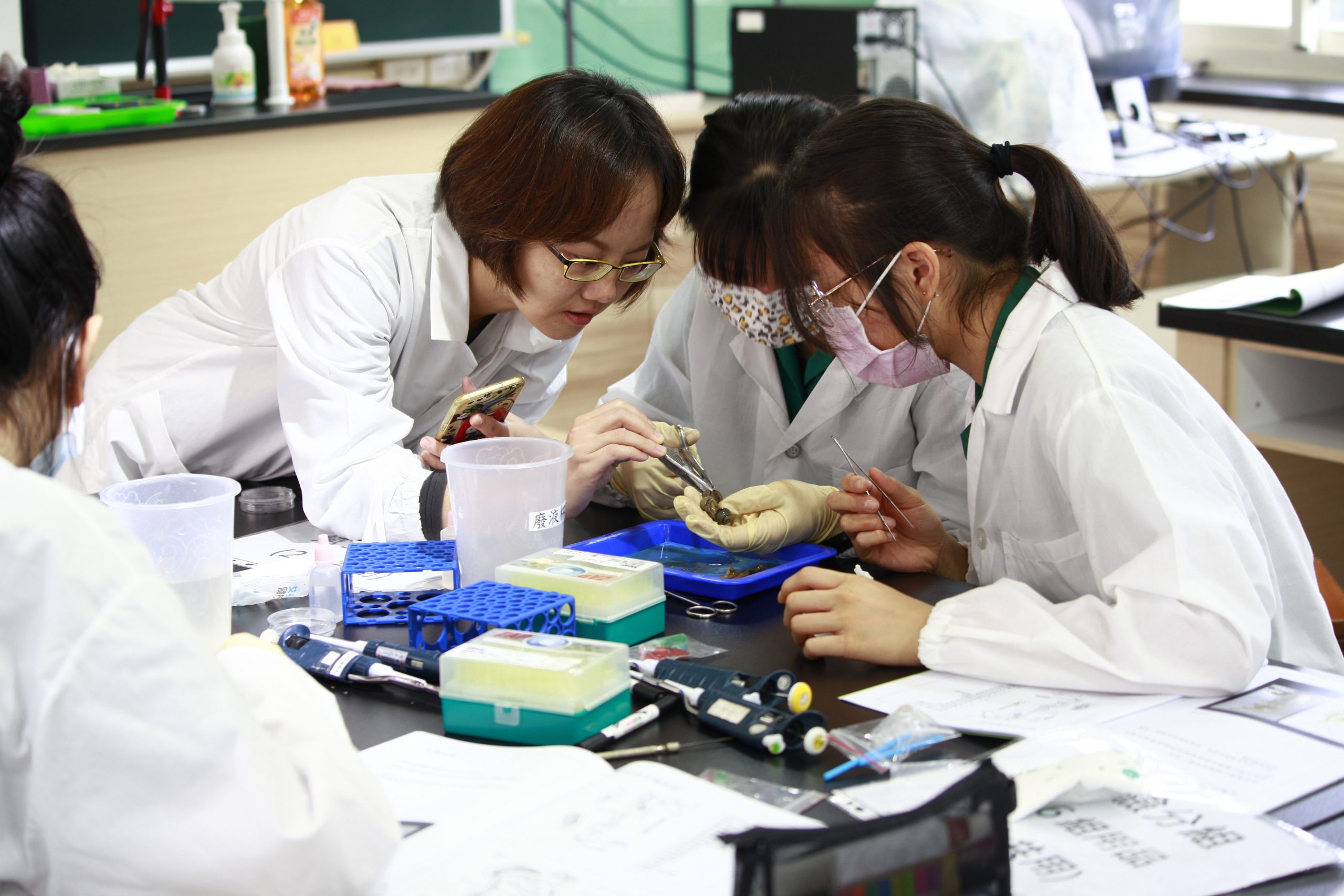
❖ Science Class
The Science Class is divided into two stages. In the first stage (Grades 10 and 11), students are required to take foundational science subjects as well as language and social science courses. Students who pass or excel in these compulsory subjects and are approved by the school can take the national Science Class qualification exam. Passing this exam is necessary to proceed to the second stage. This stage also includes courses in basic experimental techniques, project-based exploration, literature discussions, and research methods.
The second stage (Grade 12) involves advanced learning. Students can choose to take university-level courses or invite experts to teach related courses. Upon completion, students will receive certificates from the cooperating universities (National Taiwan University, National Taiwan Normal University) or the school. In this stage, students will engage with university-level mathematics and science courses, complete a “Personal Scientific Research” report, and become well-rounded in both humanistic and scientific knowledge, preparing them for future academic endeavors.
❖ STEM Education and FRC Robotics Program
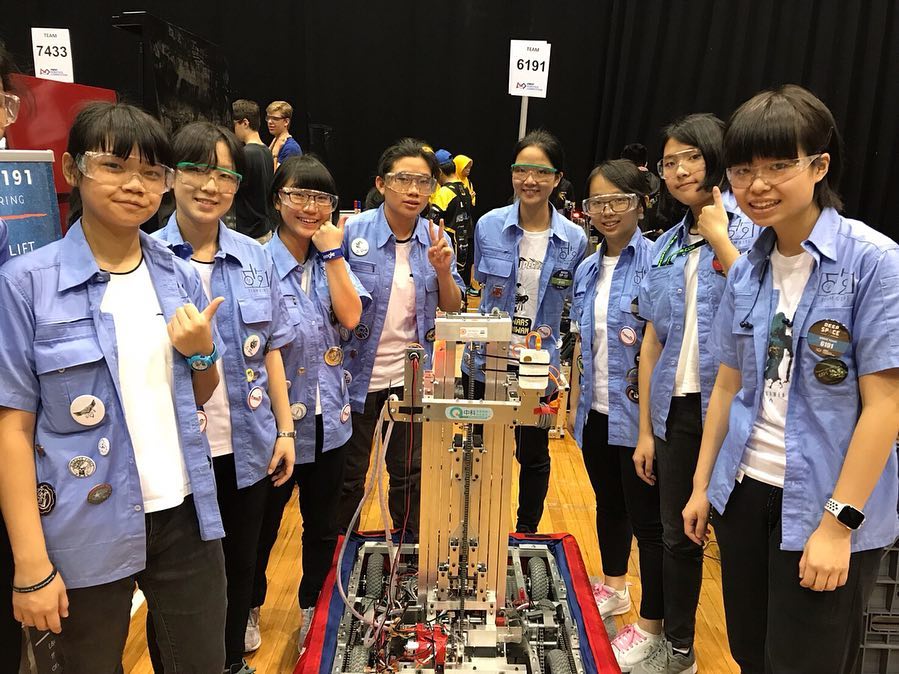
STEM education integrates Science, Technology, Engineering, and Mathematics to foster hands-on learning, creativity, and independent thinking. Since 2016, our school has established the FRC Team 6191 RoboKryptonite, offering students project-based opportunities to enhance their creativity and interdisciplinary skills. We have developed courses in CAD, CAE, CAM, basic programming, AI image recognition, and traditional machining. Our robotics team participates in cross-school and international events, promotes technology in rural schools, and organizes digital learning activities. We have won awards such as the 2017 FRC Southern Cross Regional Event Runner-up and 2018 Top Four, highlighting our commitment to STEM education.
The FRC Robotics Club won the Engineering Inspiration Award at the Australia Regional Competition, earning a ticket to compete in the 2024 FIRST Championship in the U.S., where they also received the Newton Division Judges’ Award, making them the only winning team from Taipei City.
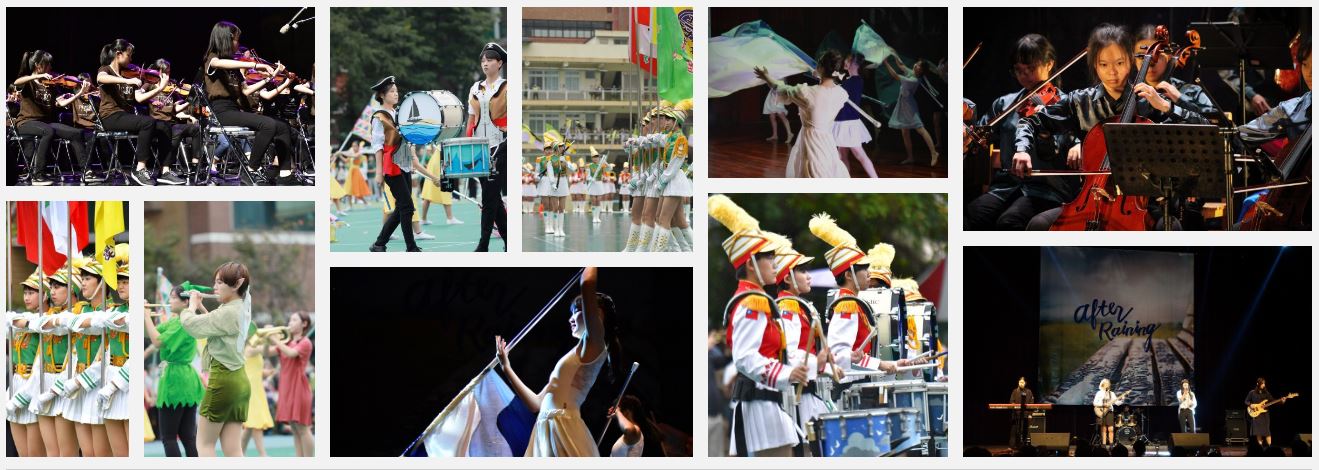
At Taipei First Girls High School, we offer a wide range of student clubs that cater to diverse interests and talents, encouraging personal growth, teamwork, and creativity. Here’s an overview of our student clubs:
❖ Autonomous Club
-
- Student Union: Facilitates student governance and collaboration across classes.
The Taipei First Girls High School Student Union is responsible for assisting in the promotion of various school-wide student activities to enrich campus life, safeguarding the rights of all members, and ensuring smooth communication channels between teachers and students. Every year, the Student Union organizes large-scale school-wide events such as the Anniversary Music Gala, the Anniversary Dance, and Movie Nights
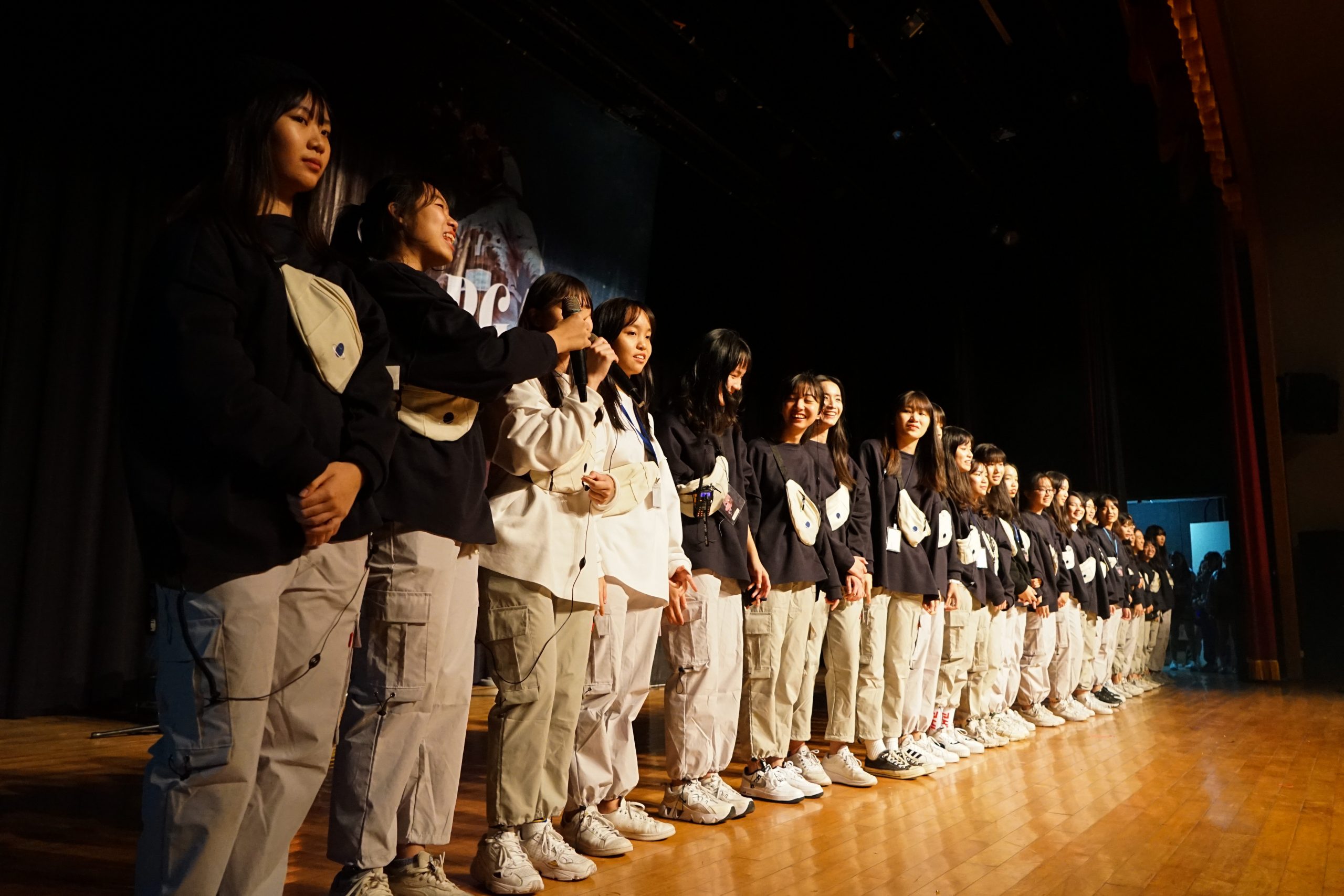
❖ Academic Clubs (Social Sciences)
Academic Clubs (Social Sciences) includes Language and Mass Communication, Debate Club, Library Information Club, English Learning Club, Investment and Finance Club, Youth Parliament, Korean Culture Research Club, and English Debate Club.
- Language and Mass Communication Club:This club focuses on enhancing students’ language skills and understanding of media communication. Members explore various forms of media, such as journalism, broadcasting, and digital content creation, while improving their speaking and writing abilities.
- Debate Club:The Debate Club sharpens students’ critical thinking and public speaking skills. Members engage in structured debates on a wide range of topics, learning how to form compelling arguments, conduct research, and present their ideas persuasively.
- Library Information Club:Dedicated to fostering a love for literature and information management, this club organizes reading activities, manages library resources, and promotes the effective use of information through book reviews, literary discussions, and educational events.
- English Learning Club:The English Learning Club provides a supportive environment for students to improve their English language skills through interactive activities such as speaking workshops, writing sessions, and language exchange programs, with a focus on building confidence and fluency.
- Investment and Finance Club:This club introduces students to the world of finance, covering topics such as investing, personal finance management, and stock market analysis. Members participate in simulations, discussions, and workshops to gain practical knowledge about financial literacy and economic principles.
- Youth Parliament:A club designed to develop leadership and civic engagement, Youth Parliament allows students to simulate government processes. Members participate in debates on current social and political issues, gaining a deeper understanding of public policy and governance.
- Korean Culture Research Club:With the rising global influence of Korean culture, this club allows students to delve into Korean language, customs, entertainment, and history. Members explore Korean music, movies, food, and traditions, while learning more about the cultural exchanges between Taiwan and Korea.
- English Debate Club:This club is a specialized forum where students practice debating in English. It helps students enhance their language proficiency, develop argumentation skills, and engage in thoughtful discourse on global issues, preparing them for national and international debate competitions.
❖ Academic Clubs (Natural Sciences)

- Science Exploration Club:The Science Exploration Club is a space for students to dive into various fields of natural sciences through hands-on experiments, discussions, and projects. Members investigate scientific phenomena, explore new technologies, and participate in science fairs to broaden their knowledge and curiosity about the world around them.
- Computer Science Club:This club focuses on programming, software development, and computer technology. Members work on coding projects, app development, and algorithmic challenges, while also learning about topics such as artificial intelligence, cyber security, and data science through workshops and competitions.
- Biology Club:The Biology Club provides students with a deeper understanding of the biological sciences. Through experiments, field studies, and group discussions, members explore various topics including genetics, ecology, anatomy, and biotechnology, fostering an appreciation for living organisms and the environment.
- Astronomy and Earth Sciences Club:For students fascinated by space and the earth, this club offers the opportunity to explore topics in astronomy, geology, meteorology, and environmental science. Members participate in stargazing events, study celestial bodies, and engage in discussions about climate change, the Earth’s geology, and more.
- Brain Development Research Club:This club is dedicated to understanding the science of the human brain. Members explore topics related to psychology, neuroscience, and cognitive development. Activities include discussions on brain function, cognitive behavior, and the latest research in brain science, aiming to foster interest in mental health and human cognition.
- Robotics Research Club:The Robotics Research Club engages students in designing, building, and programming robots. Through hands-on projects, members learn about mechanics, electronics, and software integration. They work on creating functional robots for competitions or problem-solving tasks, gaining practical experience in engineering and robotics.
- Chemistry Experiment Club:The Chemistry Experiment Club focuses on exploring the world of chemistry through experimental activities. Members conduct hands-on experiments in areas like chemical reactions, materials science, and environmental chemistry. The club encourages creative thinking and scientific inquiry, allowing students to apply classroom theory to real-world applications.
These clubs provide students with a platform to explore their scientific interests through practical experience, group collaboration, and research, helping them develop both knowledge and skills in various branches of science.
❖ Arts and Talent Clubs
-
- Photography Club, Comic Art Club, Bridge Club, Board Game Club, Film Appreciation Club, Dessert Club, Art Club, Mystery Research Club, Food Research Club, Handcraft Club
Here’s an introduction to the creative and artistic clubs:
- Photography Club:This club encourages students to explore the art of photography through workshops, photo walks, and exhibitions. Members learn various techniques, from composition to editing, allowing them to express their creativity and capture moments through the lens.
- Comic Art Club:The Comic Art Club is a space for aspiring artists and storytellers to create and share their comic strips and graphic novels. Members collaborate on projects, learn about character design and storytelling, and explore the world of comic art through workshops and discussions.
- Bridge Club:This club introduces students to the classic card game of bridge. Members learn the rules, strategies, and skills required to play effectively, fostering critical thinking and teamwork while enjoying friendly competition.
- Board Game Club:The Board Game Club brings together students who enjoy strategy and social games. Members play a variety of board games, from classics to modern favorites, encouraging teamwork, critical thinking, and friendly rivalry in a fun, relaxed environment.
- Film Appreciation Club:This club explores the world of cinema through screenings, discussions, and critiques of films from different genres and eras. Members analyze filmmaking techniques, storytelling, and the cultural impact of films, fostering a deeper understanding and appreciation of cinema as an art form.
- Dessert Club:The Dessert Club is perfect for students with a sweet tooth! Members gather to bake and taste various desserts, learn baking techniques, and share recipes. It’s a fun and delicious way to bond over a shared love for sweets and culinary creativity.
- Art Club:This club offers a creative outlet for students interested in visual arts. Members engage in various artistic activities, including painting, drawing, sculpture, and mixed media, while exploring different techniques and styles to express their creativity.
- Mystery Research Club:The Mystery Research Club focuses on solving puzzles and unraveling mysteries, whether literary, historical, or scientific. Members engage in research projects, discussions, and activities that challenge their critical thinking and investigative skills.
- Food Research Club:This club explores the cultural, historical, and scientific aspects of food. Members conduct research, organize tastings, and experiment with recipes, fostering an appreciation for global cuisines and the science behind cooking.
- Handcraft Club:The Handcraft Club encourages creativity through various crafting activities, such as knitting, sewing, and DIY projects. Members learn new skills, share their creations, and work on group projects, promoting creativity and craftsmanship.
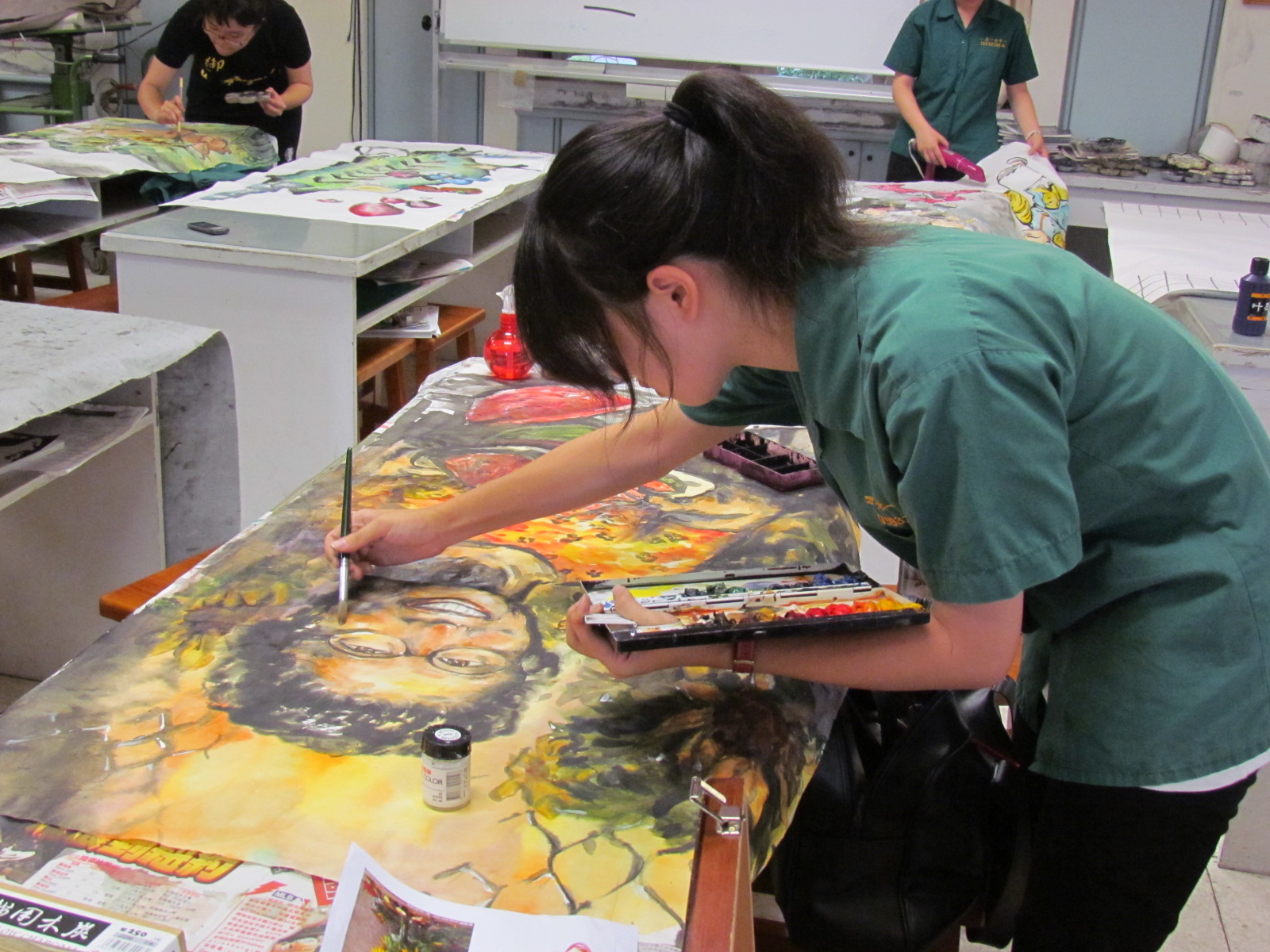
These clubs provide a vibrant space for students to express their creativity, develop new skills, and enjoy shared interests with like-minded peers.
❖ Literature Club
- School Magazine Club:The School Magazine Club is dedicated to fostering creativity and enhancing writing and editorial skills among students. Members collaborate to create, design, and publish the school’s magazine, covering a wide range of topics such as school events, student achievements, art, literature, and current affairs.
Through workshops and discussions, students learn about journalistic writing, photography, layout design, and graphic arts, allowing them to contribute their unique perspectives and talents. The club also provides an opportunity for students to express their thoughts, share stories, and engage with the school community. By producing a magazine that reflects the diverse voices of the student body, the School Magazine Club encourages collaboration, creativity, and critical thinking, while fostering a sense of pride in their school.
❖ Music Clubs
-
- String Orchestra, Choir, Chinese Orchestra, Guitar Club, Popular Music Club, Music Composition Club, Folk Guitar Club, Hip-Hop Culture Club
Here’s a brief introduction to each of the music-related clubs:
- String Orchestra:The String Orchestra brings together students who play string instruments, such as violins, violas, cellos, and double basses. Members rehearse and perform a variety of classical and contemporary music, enhancing their musical skills and teamwork.
- Choir:The Choir is a vocal ensemble that welcomes students interested in singing. Members learn vocal techniques and harmonization while performing a diverse repertoire, from classical pieces to modern songs, fostering a love for music and collaboration.
- Chinese Orchestra:This club focuses on traditional Chinese music, featuring instruments like the erhu, pipa, and guzheng. Members learn to play and perform Chinese musical pieces, promoting cultural appreciation and enhancing their skills in traditional music.
- Guitar Club:The Guitar Club invites guitar enthusiasts to come together to improve their playing skills. Members participate in jam sessions, learn various playing techniques, and collaborate on group performances, fostering a supportive environment for musicians.
- Popular Music Club:This club explores contemporary music genres, including pop, rock, and jazz. Members engage in songwriting, performance, and music appreciation, providing a platform for students to express their musical talents and creativity.
- Music Composition Club:The Music Composition Club encourages students to compose and arrange their own music. Members share their compositions, receive feedback, and collaborate on projects, developing their skills in music theory and creative expression.
- Folk Guitar Club:This club focuses on folk music and acoustic guitar playing. Members learn to play traditional folk songs, explore storytelling through music, and participate in informal performances, celebrating the rich tradition of folk music.
- Hip-Hop Culture Club:The Hip-Hop Culture Club explores various elements of hip-hop, including music, dance, and art. Members engage in discussions about hip-hop culture, participate in dance workshops, and collaborate on creative projects, celebrating self-expression and creativity.
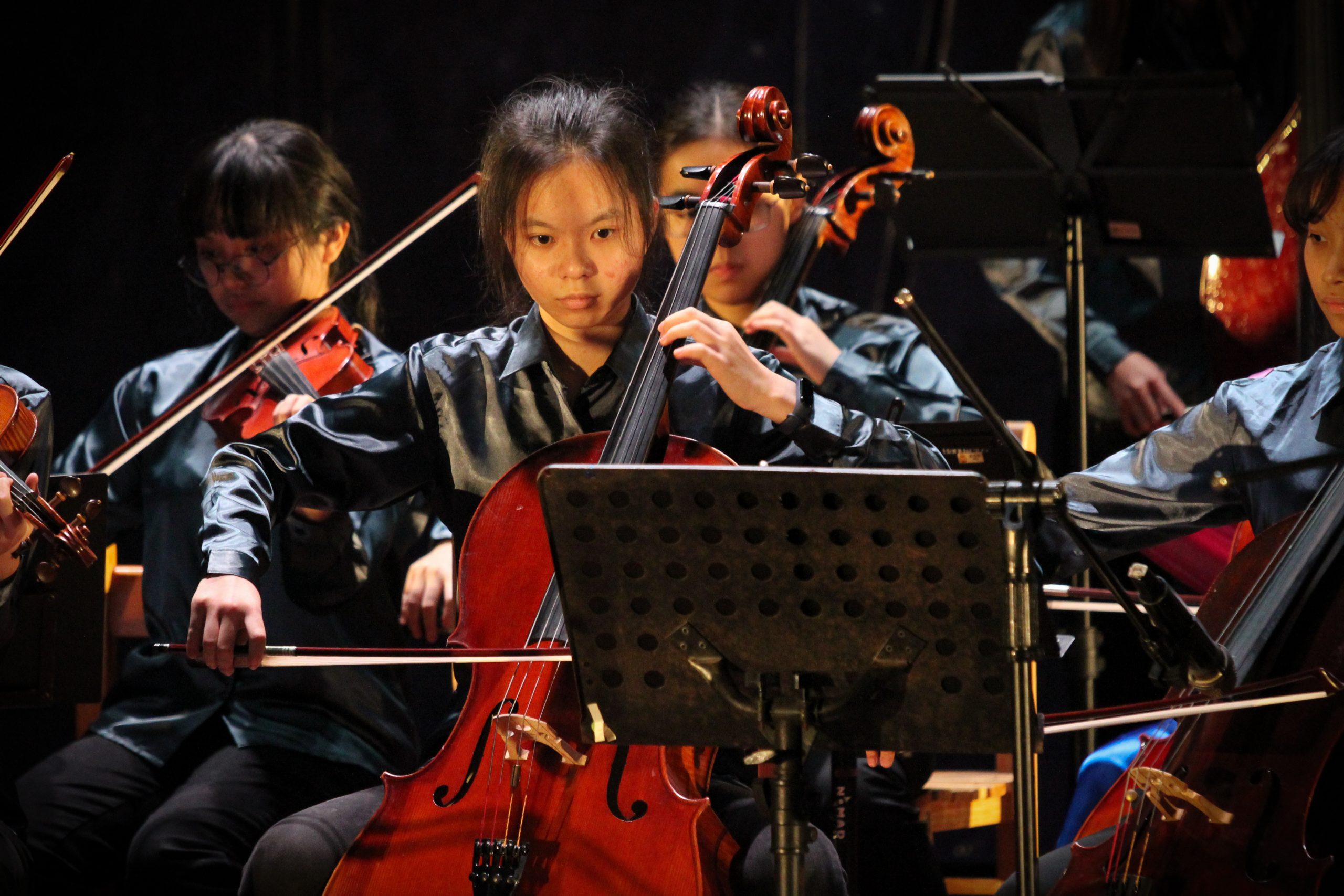
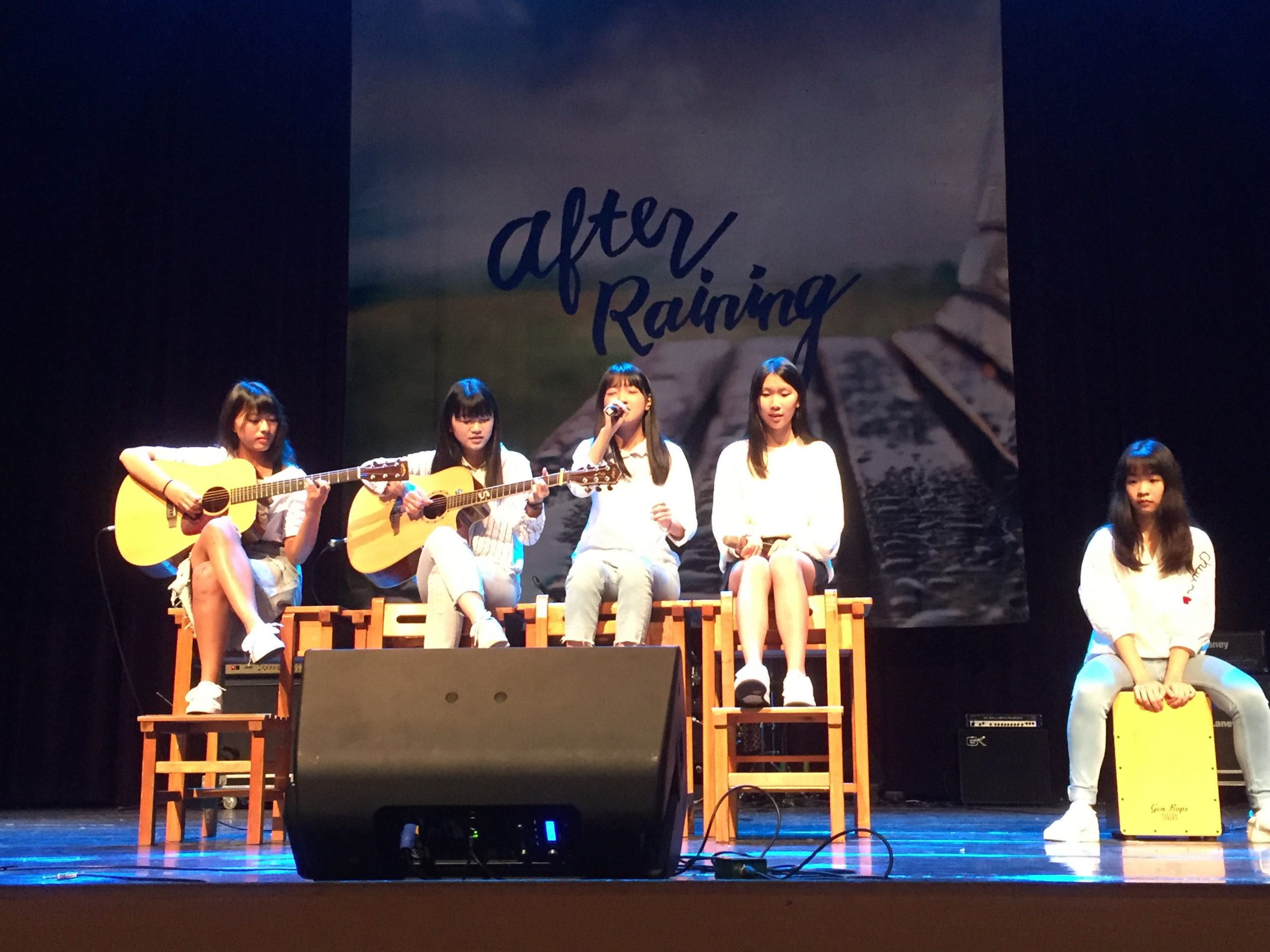
These clubs provide students with opportunities to explore their musical interests, develop their skills, and collaborate with peers who share their passion for music.
❖ Service Clubs
-
- Outdoor Exploration Club, Junior Counseling Club, Charity Club
Here’s a brief introduction to the clubs focused on exploration, support, and community service:
- Outdoor Exploration Club:The Outdoor Exploration Club is dedicated to fostering a love for nature and adventure. Members engage in various outdoor activities, such as hiking, camping, and environmental stewardship. Through exploration, they learn about ecology, develop teamwork skills, and gain a greater appreciation for the natural world.
- Junior Counseling Club:The Junior Counseling Club provides students with training and experience in peer counseling and support. Members participate in workshops on communication skills, empathy, and mental health awareness, allowing them to offer guidance and support to fellow students. The club promotes a caring and supportive school environment while empowering students to help one another.
- Charity Club:The Charity Club focuses on community service and philanthropy. Members organize and participate in various charitable activities, such as fundraisers, donation drives, and volunteer projects, aiming to make a positive impact in the community. The club fosters a spirit of compassion and social responsibility, encouraging students to give back and help those in need.
These clubs provide meaningful opportunities for students to engage with their peers, develop leadership skills, and contribute to their communities through exploration, support, and charitable efforts.
Dance Clubs
-
- Dance Club, Street Dance Club, Locking Dance Club
Here’s a brief introduction to the dance-related clubs:
- Dance Club: The Dance Club is a vibrant community for students passionate about various dance styles. Members explore a wide range of dance genres, including ballet, jazz, contemporary, and traditional dances. Through choreography, rehearsals, and performances, students develop their technique, creativity, and confidence while enjoying the art of dance.
- Street Dance Club: The Street Dance Club focuses on urban dance styles such as hip-hop, break dancing, and funk. Members learn dynamic choreography, freestyle techniques, and participate in workshops led by experienced dancers. This club promotes self-expression, creativity, and collaboration while fostering a lively atmosphere for students to showcase their talents.
- Locking Dance Club: The Locking Dance Club specializes in the locking dance style, characterized by its energetic movements and rhythmic pauses. Members practice various locking techniques, routines, and freestyle sessions, fostering a strong sense of community and collaboration. The club encourages students to express themselves through dance and participate in performances and competitions.
These clubs provide students with opportunities to explore their passion for dance, develop their skills, and connect with fellow dancers in a supportive and creative environment.
❖ Sports Clubs
-
- Taekwondo Club, Skateboarding Club, Badminton Club, Volleyball Club, Swimming Club, Table Tennis Club, Yoga Club, Skating Club
Here’s a brief introduction to the sports and physical activity clubs:

- Taekwondo Club: The Taekwondo Club focuses on martial arts training, emphasizing discipline, respect, and physical fitness. Members learn various techniques, forms (poomsae), and sparring skills while also gaining self-defense knowledge. The club promotes physical health and mental resilience through regular practice and competitions.
- Skateboarding Club: The Skateboarding Club is for students who enjoy skateboarding as a sport and form of expression. Members meet to practice tricks, participate in skateboarding events, and explore local skate parks. The club encourages creativity, balance, and camaraderie among skateboarders of all skill levels.
- Badminton Club: The Badminton Club provides a platform for students to engage in this fast-paced racquet sport. Members practice skills, tactics, and teamwork through friendly matches and tournaments. The club promotes physical fitness, agility, and sportsmanship in a fun and competitive environment.
- Volleyball Club: The Volleyball Club focuses on teamwork, coordination, and strategy in the popular sport of volleyball. Members train together to improve their skills, participate in matches and tournaments, and build a strong sense of community. The club fosters sportsmanship and collaboration among players.
- Swimming Club: The Swimming Club is dedicated to improving swimming skills and promoting water safety. Members participate in training sessions, swim meets, and water-based activities, focusing on various strokes and techniques. The club encourages fitness, teamwork, and a love for aquatic sports.
- Table Tennis Club: The Table Tennis Club provides a space for students to enjoy this fast-paced indoor sport. Members practice techniques, engage in friendly matches, and participate in tournaments. The club emphasizes agility, reflexes, and sportsmanship, creating a fun atmosphere for all skill levels.
- Yoga Club: The Yoga Club promotes physical and mental well-being through yoga practice. Members learn various yoga styles, meditation techniques, and relaxation methods. The club fosters mindfulness, flexibility, and stress relief while encouraging students to connect with their bodies and minds.
- Skating Club: The Skating Club is for students interested in roller skating and inline skating. Members gather to practice their skills, learn tricks, and participate in skating events. The club encourages fitness, coordination, and creativity while providing a fun environment for skaters of all levels.
These clubs offer students opportunities to engage in physical activities, develop their skills, and foster a sense of community through sports and fitness.
With a wide selection of clubs, students have the opportunity to explore their passions, develop new skills, and collaborate with peers. These clubs not only foster academic excellence but also enhance leadership, creativity, and global awareness.
Marching Band, Honor Guard, Color Guard
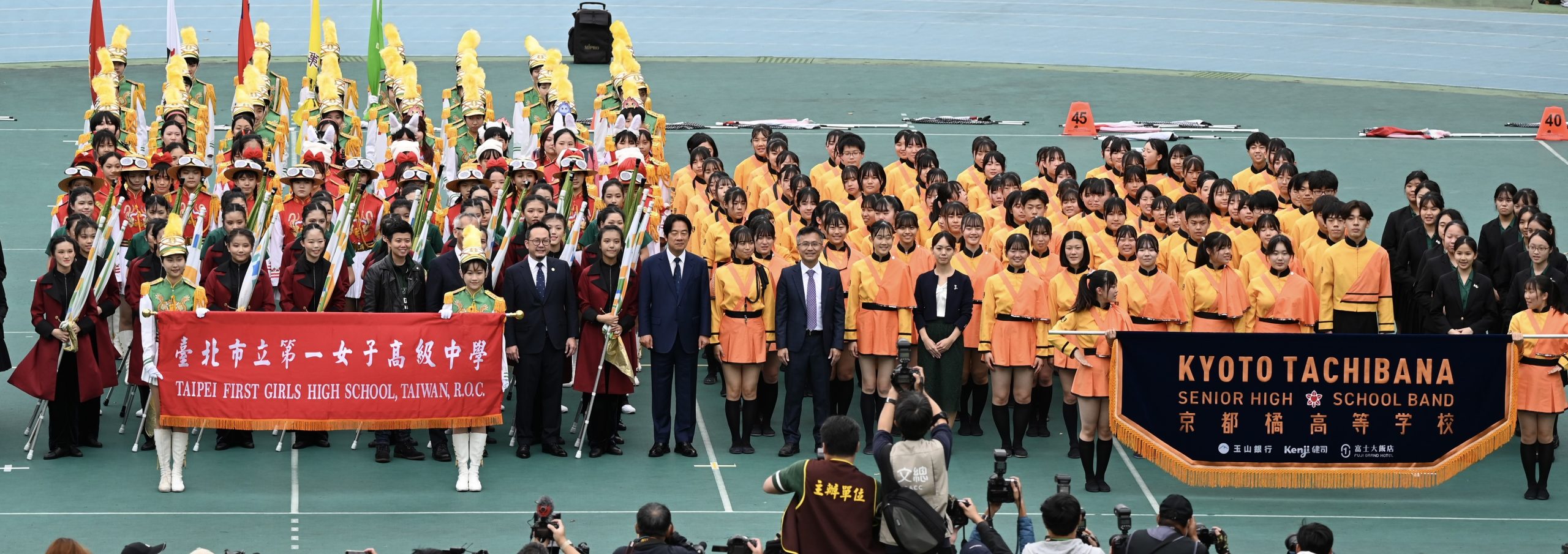
Marching Band: The Marching Band is a dynamic ensemble that combines music and performance, participating in school events, parades, and competitions. Members learn to play various instruments while perfecting their formations and choreography, fostering teamwork and musical skills.
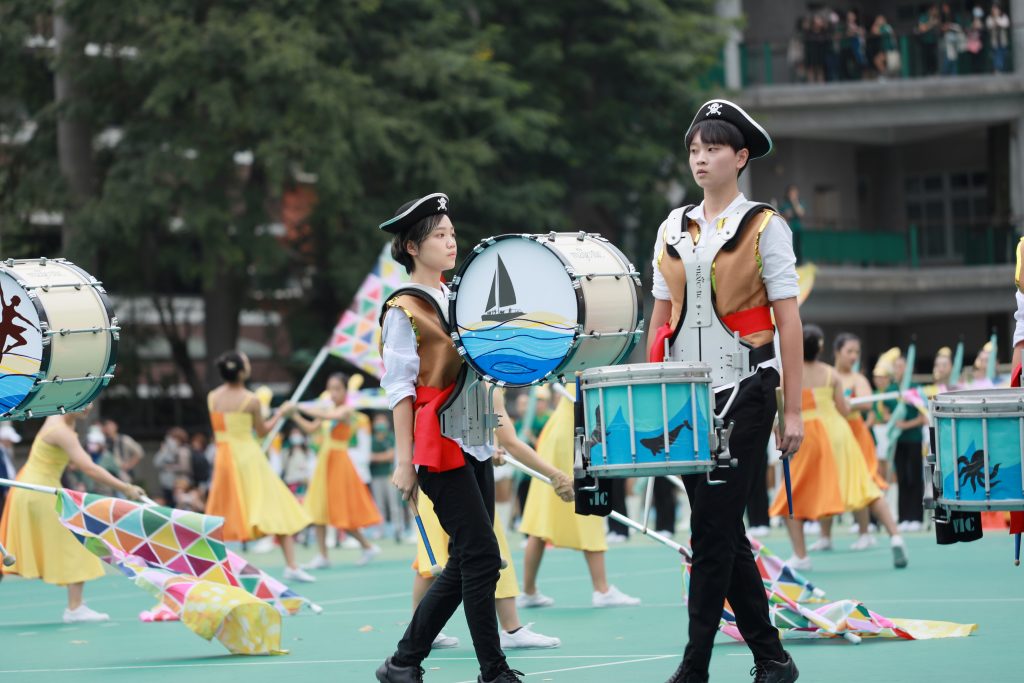
Honor Guard: The Honor Guard is a ceremonial group responsible for presenting colors and participating in official events. Members demonstrate discipline, respect, and dedication while representing the school at various ceremonies, fostering a sense of pride and tradition.
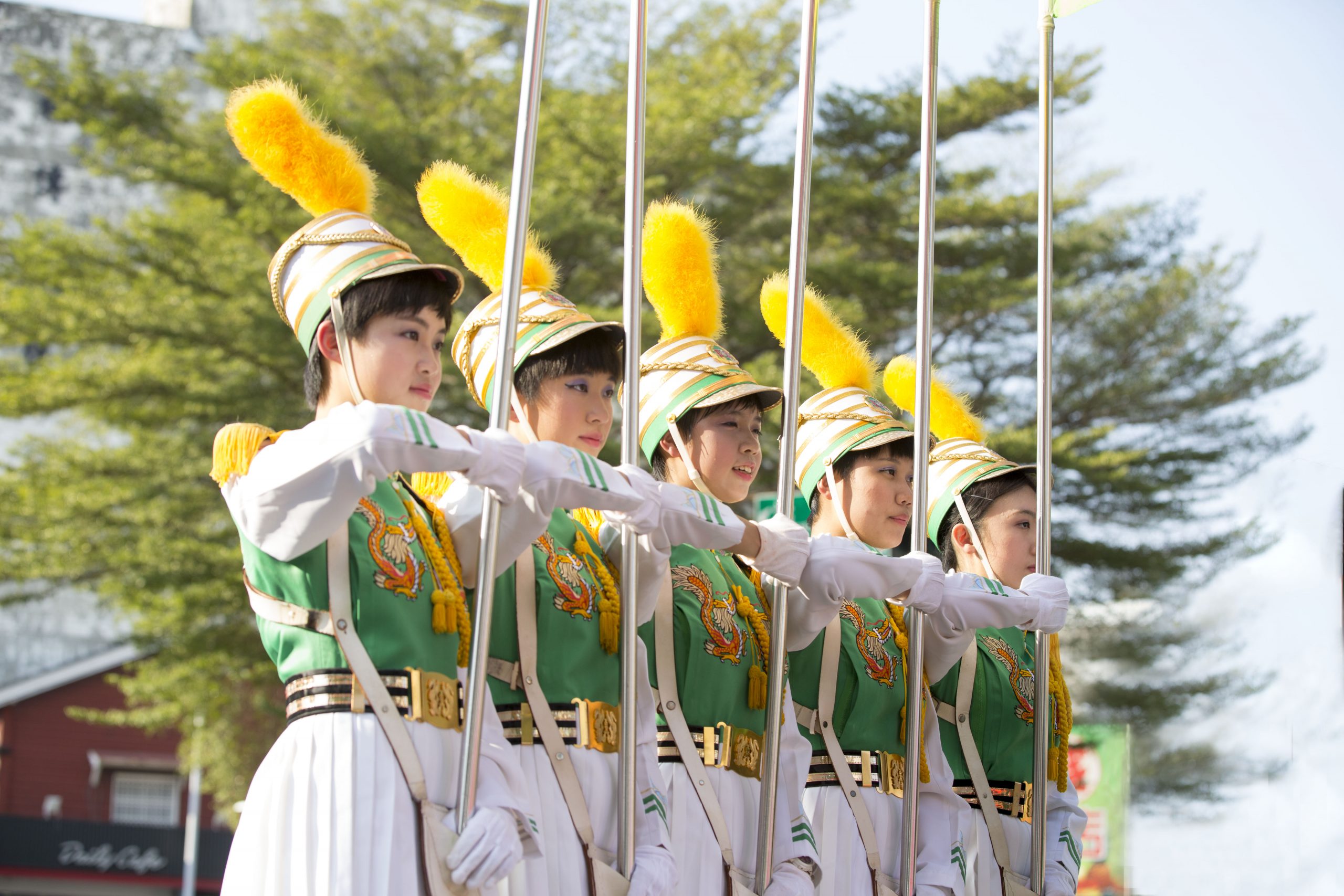
Color Guard: The Color Guard enhances the marching band’s performances with visual artistry through flags, rifles, and dance. Members learn choreography and work closely with musicians to create captivating routines, adding a vibrant visual element to school events.
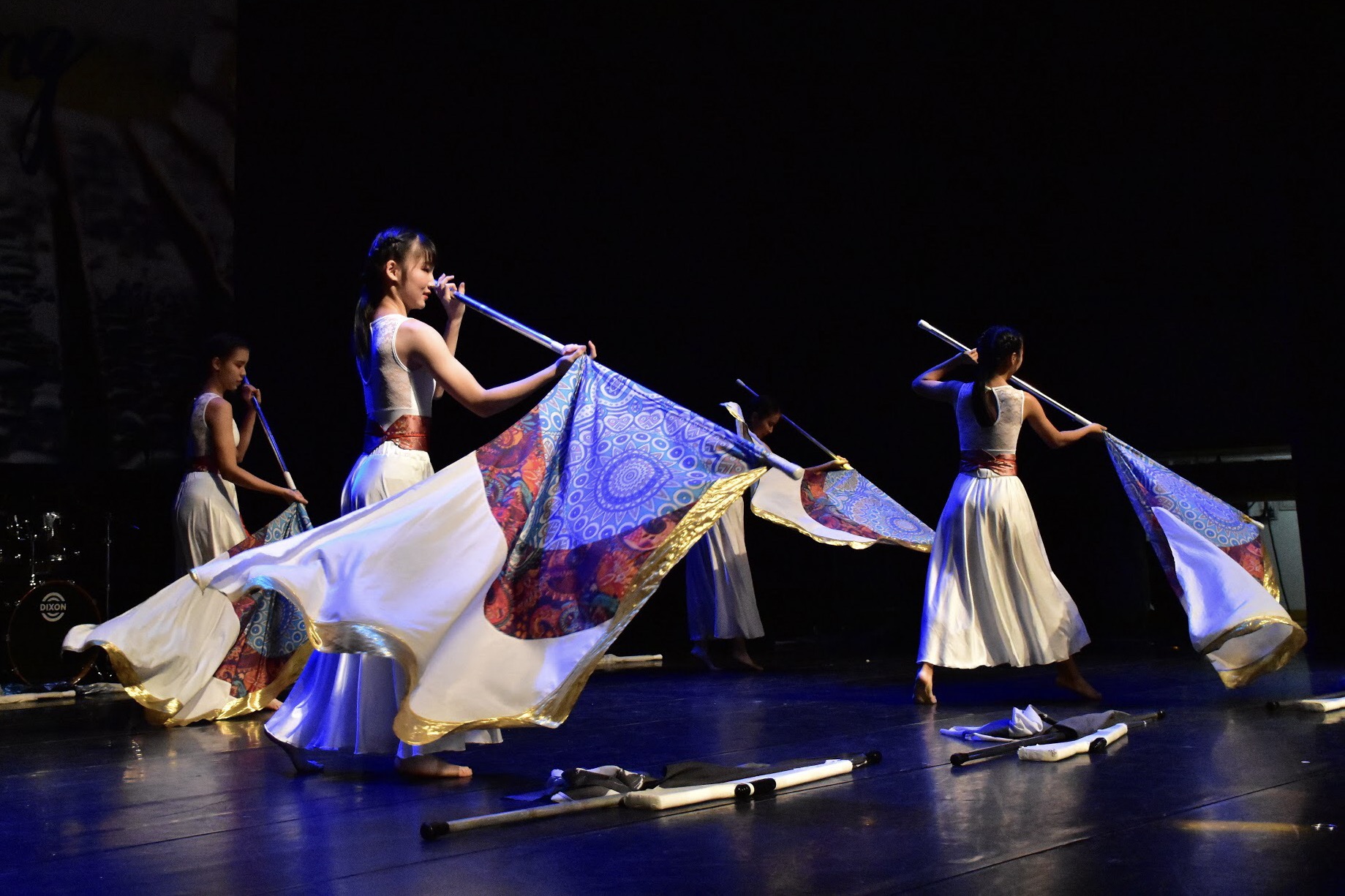
First Girls Student Ambassadors (link)
This club focuses on leadership and representation, empowering female students to become ambassadors for the school. Members participate in community service, outreach programs, and school events, promoting a positive image and fostering school spirit.
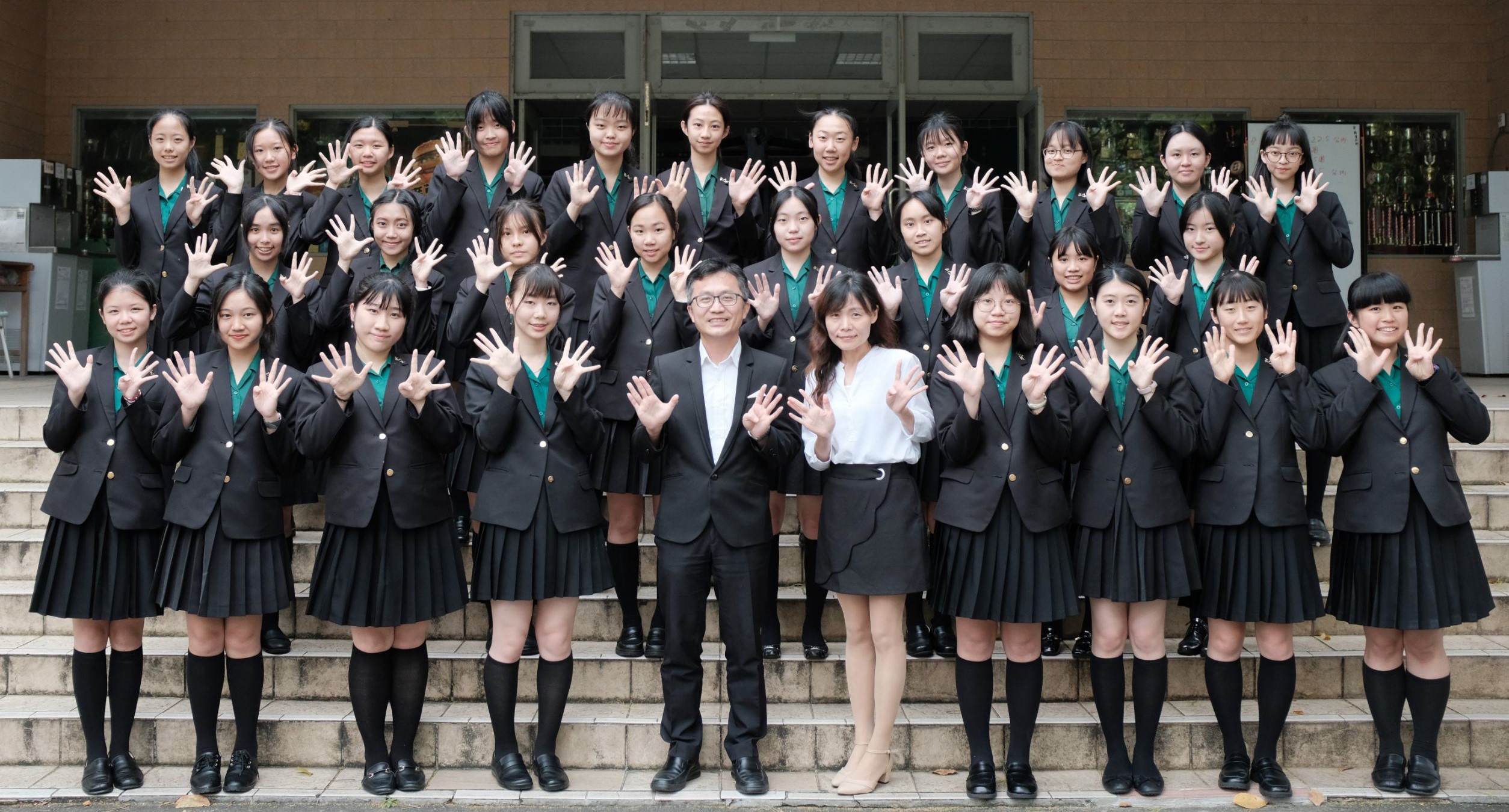
Basketball Team (A and B Teams)
The Basketball Teams provide opportunities for students to develop their skills in this fast-paced sport. With both A and B teams, players compete in matches and tournaments, emphasizing teamwork, discipline, and sportsmanship.
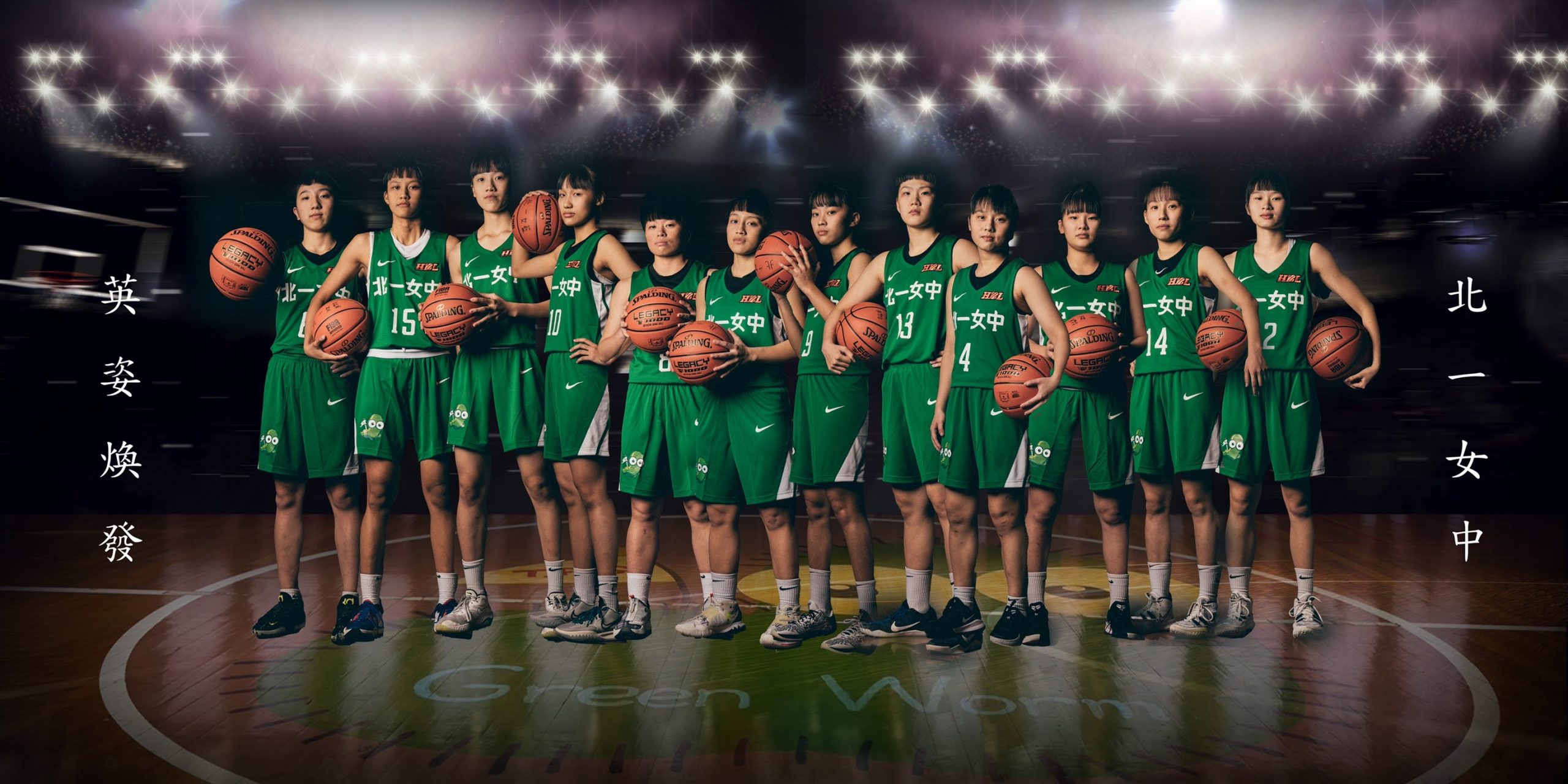
Our basketball team(team A) achieved a remarkable feat by winning the championship in the 112th Academic Year Women’s Basketball League, completing the season undefeated. This victory marks the first time in school history that a team has won the HBL championship without being a specialized sports program.
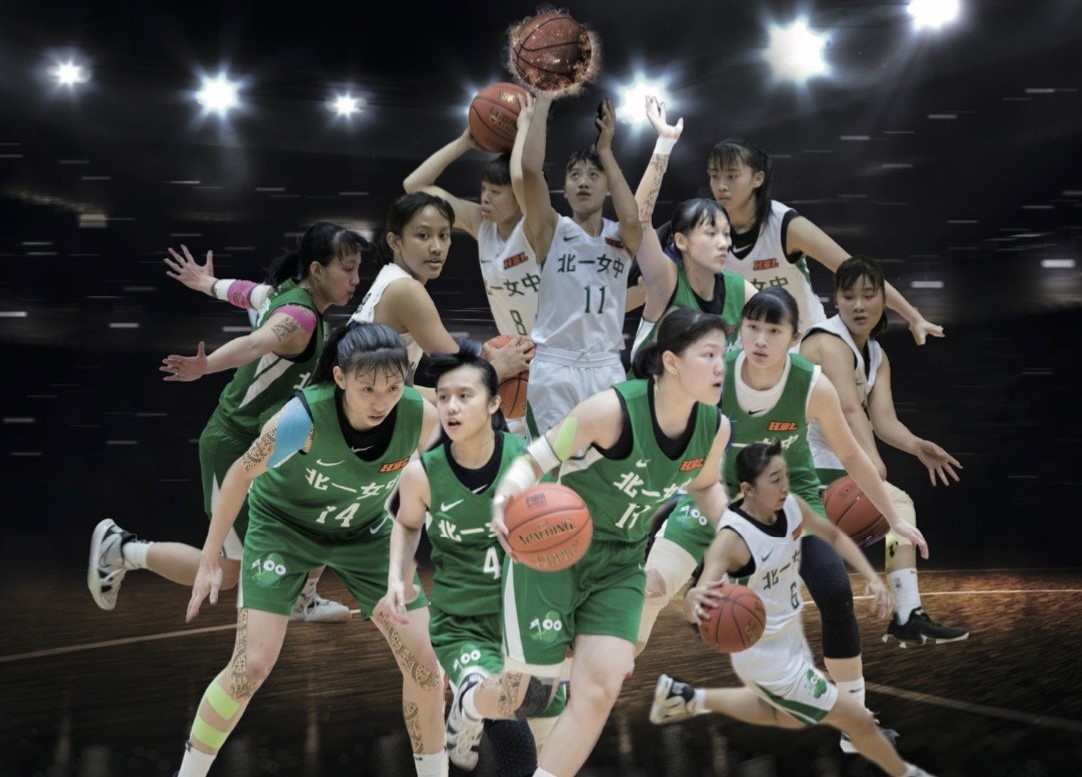
Basketball Team B (Lanyi) is like a big family. Here, not only can you improve your basketball skills, but you also gain experience in organizing events and make lifelong friends. Through regular practices, friendly matches, and various tournaments, we collect memories filled with youthful energy. These will surely become some of the most unforgettable moments of our high school years!
Tennis Team
The Tennis Team is for students interested in playing singles or doubles matches. Members practice techniques, strategies, and compete in local tournaments, fostering a love for the game and promoting physical fitness.
Track and Field Team
The Track and Field Team encompasses a variety of athletic events, including sprints, distance running, jumping, and throwing. Members train together, competing in meets and developing their athletic abilities, teamwork, and discipline.
These clubs and teams provide students with opportunities to engage in sports, develop leadership skills, and foster a sense of community and school pride through their various activities and performances.
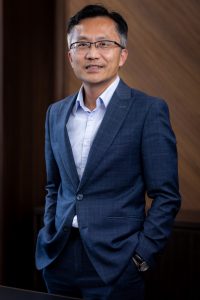
As we begin a new school year, I would like to warmly welcome the new first-year students to the Taipei First Girls’ High School family. We are fortunate to meet in this great institution, and even if our paths do not cross beyond these three years, let us cherish our time together.
Reflecting on the various aspects of school development, the past year resembled a high-tension drama series, with each season offering rich and engaging plots. The grand celebration of our 120th anniversary not only made waves nationally but also rekindled the emotions of our alumni around the world, allowing us to collectively witness the glorious history of our school.
The recently renovated Guangfu Building combines modern facilities with historical aesthetics, receiving high satisfaction ratings from students and faculty alike, while also garnering praise from visiting guests. It has recently won the Taipei City Government Excellence Award for Public Works and the Cultural Heritage Conservation Award.
In March, our basketball team achieved a remarkable feat by winning the championship in the 112th Academic Year Women’s Basketball League, completing the season undefeated. This victory marks the first time in school history that a team has won the HBL championship without being a specialized sports program. Simultaneously, the FRC Robotics Club won the Engineering Inspiration Award at the Australia Regional Competition, earning a ticket to compete in the 2024 FIRST Championship in the U.S., where they also received the Newton Division Judges’ Award, making them the only winning team from Taipei City.
From February to August, we secured first place in the high school group of the Taipei Science Fair and the National Science Fair. Nine projects were selected as representatives for international exhibitions, with two students receiving the highest honor, the “Intel International Science and Engineering Fair Award.” The Flag Team showcased our unique cultural heritage during their summer trip to Canada, performing on an international stage and promoting beautiful diplomacy for Taiwan.
Our recent graduates continue to excel in their higher education pursuits, with more than 9% accepted into medical and dental schools— a record high in 20 years. Undoubtedly, there are many efforts behind the scenes that we may not see, such as organizing the National High School Entrance Committee’s work throughout the year.
As we embark on the 113th academic year, both faculty and students are tirelessly engaged in various activities. We have never stopped working diligently. I want to express my gratitude to our teachers for their dedication and the countless hours they invest in our students. The glorious history of our school is built upon their hard work.
The Parent-Teacher Association has been immensely supportive, always working behind the scenes to support school affairs while allowing the spotlight to shine on our students and teachers. I hope the association continues to foster a culture of selflessness, always prioritizing our students and school. The greatest asset of Taipei First Girls’ High School is its people. Only through close cooperation and unity among parents, teachers, and students can we continue to shine brightly and reach new heights!

